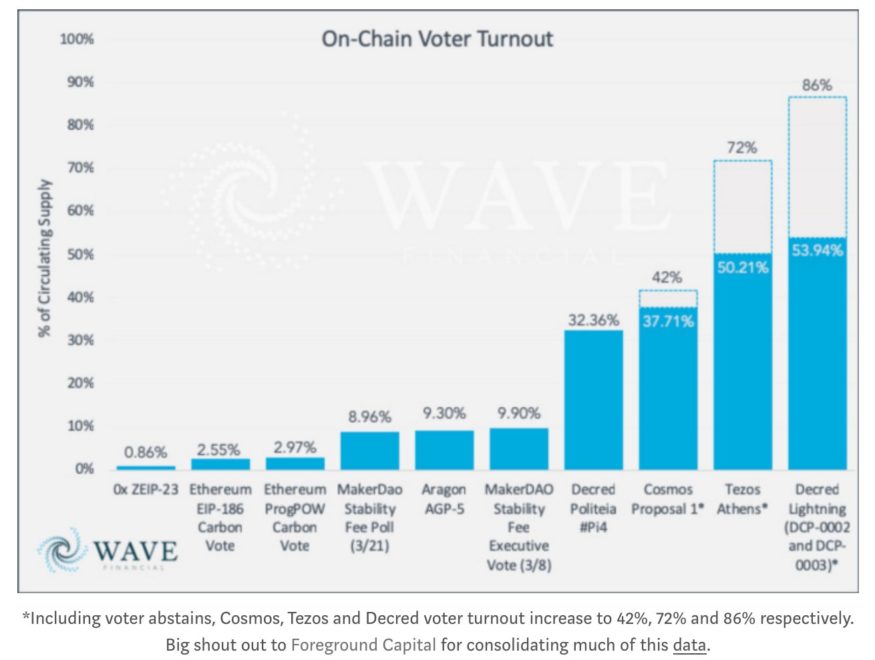A current investigation into ‘voter turnout’ as an indicator of neighborhood participation in decentralized-governance tokens, throws up some attention-grabbing outcomes. Regardless of the belief that token-holders would take part purely by way of the passive incentive of possession, most desire extra tangible advantages.
Off-Chain Vs. On-Chain Governance
Who governs Bitcoin? Whereas no one owns the community, someone should be answerable for parameters reminiscent of block measurement and including capabilities like SegWit. In fact, Bitcoin governance happens off-chain. Any proposal for the protocol should be formalised, examined and mentioned among the many customers, till it good points a big majority assist. As soon as accepted, node operators replace their software program to incorporate the brand new proposal.
In distinction, on-chain governance offers token holders the possibility to straight have an effect on the protocol, with on-chain voting on main choices. However do such mechanisms give a very democratic final result, and do nearly all of token holders even care?
Encouraging Token-Holders To Vote
Voter turnout on such proposals is a really tough information to neighborhood participation. When taking a look at a number of current votes, the investigation notes that there’s a massive disparity between initiatives.
Many initiatives wrestle to get voter turnout of even 10%. This turns into an excellent greater drawback when contemplating pockets tackle participation versus circulating provide.

For instance, the Aragon AGP-5 proposal attracted voters controlling 9.30% of the circulating provide. Nevertheless, by way of collaborating pockets addresses, this accounted for simply 0.12% (25 wallets out of over 20,000). This solely goes to strengthen the case in opposition to on-chain voting as resulting in plutocracy.
The standouts in opposition to this development of voter apathy appear to be Decred, Cosmos, and Tezos. The truth is, accounting for abstentions (reminiscent of that of the Tezos basis), these initiatives have voter turnouts which put US elections to disgrace. So how do they do it?
Self-Id And Incentivisation
Firstly, it is very important be aware that every one three of those protocols actively ‘identify’ as self-governing blockchains. It might be that this ingredient of the initiatives is without doubt one of the key attracts which appealed to most of the token-holders.
Moreover, and maybe a higher issue, is that Decred, Cosmos, and Tezos, all present voters with direct incentives to take part by way of Proof-of-Stake. So the belief that token holders will take part in on-chain governance votes purely by way of their passive possession appears flawed.
There are a lot of the reason why a stakeholder could select not to vote; from difficult polling process, to lack of sturdy opinion or experience on the matter in hand. Or they merely speculate on coin worth and couldn’t care much less about its growth and future.
However when confronted with a tangible incentive, extra stakeholders seem to have a compelling cause to vote.
Will on-chain governance fashions enhance and incentivize customers to vote? Share your ideas under!
Pictures by way of Shutterstock, Wave monetary
The put up Few Truly Care About Blockchain Governance, Information Reveals appeared first on Bitcoinist.com.

























